‘If you want a picture of the future, imagine a boot stamping on a human face – for ever.’ (George Orwell)
「如果你想知未來的樣子, 你就想像一隻皮靴永遠踩在一個人臉上」 – 喬治.歐威爾
Update, 7/1/22: Chinese translation (traditional characters) by the author now follows the English original.
您亦可直接跳至英文文末並閱讀筆者鄭文傑 (Simon Cheng) 所翻譯的繁體中文版本。
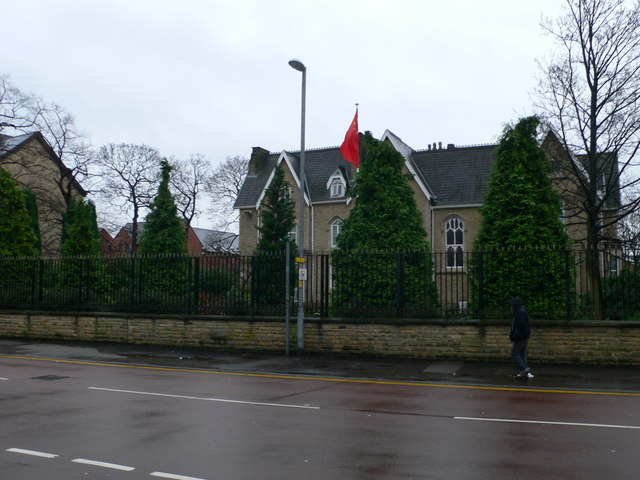
On 16th October, a group of Hongkongers gathered outside the Chinese Consulate in Manchester to protest against the further consolidation of General Secretary Xi Jinping’s power at the Chinese Communist Party’s Congress in Beijing, and in support of their pro-democracy movement in Hong Kong. During their peaceful protest outside the Consulate – on British soil – they presented their ideas through visual art. One of the protesters displayed a satirical poster of a naked Xi Jinping, dressed, as it were, in the ‘emperor’s new clothes’. The reference to the folktale suggested the absurdity of absolute power, and the way in which it can corrupt and distort the face, and lead to the construction of a ‘parallel truth’.
This poster, as well as other signs, placards and banners held by the protesters, apparently made the officials in the Consulate feel uncomfortable. In response, video footage shows staff from the consulate, dressed in riot gear, opening the gate and stepping outside the Consulate grounds onto the street in an attempt to kick down, remove and vandalise the placards. The protesters tried to protect their property from being vandalised and snatched away. A scuffle ensued; and the Consulate resorted to brutal violence. Consular officials can be seen dragging protestors onto Consulate grounds behind the gates and proceeding to beat them in full view of the Greater Manchester Police.
The Consul hastily fabricated a ‘parallel truth’, alleging in a statement to the police that ‘the Consulate grounds were stormed by a group of protesters and members of consular staff were required to physically fend off unauthorized entry and subsequent assaults.’ This ‘counter-narrative’ propaganda, with its own dedicated Twitter feed, ‘Manchester Story’, quickly and systematically spread out among many pro-Beijing groups of Chinese students and expats overseas, as well as local influencers on social media and video platforms such as Twitter and YouTube (for example here and here).
In the Consulate’s statement to British media (in Chinese), they said that ‘diplomatic missions wouldn’t tolerate their head of state being denigrated by protestors’. This cannot justify their violent crackdown on protestors who were attempting to hold the one-party dictatorship in Beijing to account for its abuse of power. In fact, what actually happened was that Consul Zheng Xiyuan, who is one of China’s top diplomats, acted violently and spoke disingenuously, manifesting a totalitarianism which ought to be unimaginable in the world’s oldest liberal democracy.
The Manchester incident raises the question of how far China’s representatives will go in their attempts to suppress all critics who challenge their political system and its leader overseas. It suggests that they are behaving in an increasingly assertive and even aggressive way, using what has been named ‘wolf warrior diplomacy’, after a classic patriotic film.
For one thing, the consulate staff were wearing riot gear, such as protective vests and helmets. This suggests that they expected and even prepared for potential conflict. For another, the violence they inflicted on the protesters would have been impossible had it not been sanctioned by the Consul – who even admitted not only issuing the order, but also pulling the hair of one protester, which he claimed it was his ‘duty’ to do. The Consul’s statement to the police said that the protests were ‘deeply offensive’ – the typical rhetoric of bullies who want to silence criticism. If such a crackdown was prepared on the orders of the top diplomatic official in the Consulate, then it should be regarded as the behaviour of the State rather than a matter of individual failings.
If the British authorities do not follow up this state-sponsored assault on its critics with the strongest legal and diplomatic consequences, it will send a very worrying signal: that the UK permits China’s diplomats to abuse power on British soil without fear of the consequences. In such circumstances, who knows what China will do over here next.
As for those Hongkongers who are seeking asylum in the UK, and who value the freedoms which were taken away one by one in Hong Kong, they are in a far more vulnerable position than the Chinese diplomats. They are not protected by diplomatic immunity, but they continue to be menaced by the Hong Kong National Security Law. This effectively criminalises dissenting thought; moreover, Article 38 asserts extraterritorial jurisdiction over non-citizens of mainland China and Hong Kong, even if they reside outside the country’s borders. In the first month after its enactment, the Hong Kong police issued an arrest warrant for six activists, including the author of this article, and (as reported in the Columbia Journal of Transnational Law) Samuel Chu, an American citizen and founder of Campaign for Hong Kong, for ‘collusion with a foreign government’. In December 2021, the Hong Kong Economic and Trade Office, which represents the territory in the UK, sent a letter warning the Sunday Times that an article they had published criticising Hong Kong’s electoral system might be illegal under Chinese law, even though it had been published by a UK paper in the UK. And there are other examples of this jurisdiction creep.
There are already political tensions in the UK between the emerging community of exiles from Hong Kong and well-established pro-CCP Chinese communities. However, the incident at the Consulate indicates a systemic threat to the rights of everyone in the UK – and potentially in other Western countries – and ought to be considered in the context of national security.
First, the CCP could use its diplomatic impunity and privilege as a shield for its security agents, under the guise of diplomatic staff, enabling them to hunt down dissidents violently overseas. Secondly, China’s assertive economic policy in recent years, such as with its Belt and Road Initiative, has resulted in the establishment of a political, business, academic and media nexus between the UK and China which helps to subtly thwart critics of the CCP. There already appears to be a serious infiltration of CCP influence in every echelon of British society. For instance, the United Front Work Department, the propaganda unit by which the CCP seeks to strengthen its power abroad, is operating in the UK, through agents such as Christine Lee. The Confucius Institutes spread cultural propaganda. And some British Chinese groups, who have received government funding to welcome Hongkongers moving to the UK, have been accused of being infiltrated by CCP agents like Lee.
It is widely suspected that the British police have been advised by Chinese community leaders who also serve in the top state institutions under the one-party leadership in China, such as the Overseas Chinese Affairs Committee of the National People’s Congress and the Overseas Chinese Committee of the Chinese People’s Political Consultative Conference. In both of these, there is a quota for ‘returned overseas Chinese’ participants.
The police could spend many months on their investigation of the Manchester incident. This delay would give politicians and civil servants a convenient excuse for deferring any action against Beijing. It would also give the Chinese foreign ministry plenty of time to send the diplomats involved off to other countries before they could be touched by the UK authorities.
Some might argue that politicians who take a ‘hawkish’ stance against the CCP, in the name of national security and human rights, are standing in the way of protecting the UK’s interests in China. However, looking back at what has happened to Hong Kong since 1997, the CCP has gradually used economic and judicial measures to tighten its grip there, and to claim legitimacy for such tactics overseas. If the UK and other liberal countries do not resist China’s acts of totalitarianism on their home ground today, they will legitimise them. Future generations will suffer the consequences.
Instead, the British authorities should take decisive action now, and not kick the can down the road:
(1) The Greater Manchester Police must promptly carry out a thorough investigation and make their findings public.
(2) Those responsible for the violence must be duly punished in accordance with English law, as far as the Vienna Convention allows, so as to uphold justice.
(3) The Consulate staff members must be condemned for violation of the Vienna Convention; they must be declared personae non gratae and expelled from the country forthwith.
(4) If the Chinese Consulate General in Manchester has become nothing more than a centre for the surveillance of dissidents and critics, it must be closed.
(5) A police forum should be held with Hongkongers in each region of the UK. Hongkongers should be represented on one of Manchester Police’s Independent Advisory Groups (IAG).
(6) The consulate should be challenged on its attempt to characterise the protesters’ satire as ‘hate speech’. Rather than being ‘Sinophobic’, the protesters were exercising their legitimate right of free speech to protest against a political leader who is widely considered to be abusing his own power over his country. The CCP’s propagandistic attempts to identify itself with the whole of the Chinese people en masse should be resisted: a totalitarian regime does not represent its citizens.
(7) The UK foreign office should immediately issue a stronger statement on the attack.
The protests in Manchester referred to the recent Party Congress in Beijing. Chairman Xi Jinping is widely suspected of deliberately ushering out former Chairman Hu Jintao in front of the international media during the closing session of Party Congress, in order to demonstrate that the era of a comparatively ‘liberal’ China under the Hu-Wen leadership is gone. Instead, Xi’s far more aggressive and dictatorial narrative looks likely to dominate China in the coming years.
By scrapping the limit to the term of his chairmanship in state-party constitutions and so enabling him to rule indefinitely, as well as by weakening the collective leadership, and removing the premier Li Keqiang and other opponents, Xi has eliminated all obstacles in the way of consolidating near-absolute power in his own person. As a result, he may feel strong enough to wage war against Taiwan and neighbouring countries. Some analysts estimate that an invasion of Taiwan could happen as soon as next year. At the same time, aggression from CCP diplomats, agents, and loyalists in the UK, and elsewhere in the West, may also be scaled up.
The diaspora of Hongkongers will sit tight and be prepared to tackle the security challenges posed by China. We will carry on being robust advocates for democracy and freedom here in the UK – and hope sincerely that all freethinking, liberal-minded people will join us.
On the reasons why Hongkongers are leaving the territory and coming to the UK in large numbers, see further our article here.
Enjoy this article? Subscribe to our free fortnightly newsletter for the latest updates on freethought.
10月16日,一群港人在中國駐曼徹斯特總領事館門外集會示威,抗議中共總書記習近平藉着正在北京舉行的中共黨大會進一步集中權力,並支持香港的民主運動。 就在他們在領館以外的英國領土和平地表達抗議之際, 他們通過視覺藝術畫作表達他們的想法。其中一名抗議者展示了一張赤裸的習近平的諷刺海報,他身著「皇帝的新衣」。 這樣的民間故事暗示了絕對權力的荒謬,它可以腐化和扭曲面孔及事實,並進而構建虛假的「平行事實」。
這張海報,以及抗議者舉著的其他標語、標語牌和橫幅,顯然讓領館官員感到不舒服。 作為回應,視頻片段顯示領事館的工作人員身著防暴裝備,打開閘門,走出領事館範圍,走到英國街上並踢倒、移除和破壞標語牌。 抗議者試圖保護他們的財產不被破壞和搶走。 隨後發生了混戰; 領事館採取了殘暴的暴力手段。 可以看到領事官員將抗議者拖到大門後面的領事館場地,並在大曼徹斯特警察眾目睽睽之下毆打他們。
領事倉促編造了一個「平行事實」,在給警方的一份聲明中聲稱「領事館場地遭到一群抗議者的猛攻,領事館工作人員被要求以肉體抵擋未經授權的侵入和隨後的襲擊。」隨事件以後而成立的推特帳號「曼徹斯特故事」 (Manchester Story) 開始帶出引導輿論風向的敘事宣傳, 隨後在許多親北京的中國學生和海外僑民群體以及社交媒體和視頻平台(如 Twitter 和 YouTube) 開始流傳及散播。
在領事館對英國媒體的聲明中(中文),他們說「外交使團不會容忍他們的國家元首被抗議者詆毀」。這絕不能正當化他們暴力鎮壓反對獨裁政權的抗議者,因為他們是濫用權力的罪魁禍首。 事實上,中共在曼徹斯特當地的最高外交官鄭曦原總領事行為粗暴,言辭不實,在這古老的自由民主國家大放厥詞,公然發表着極權專制的言論,實在難以想像。
曼徹斯特事件引發了一個問題,即中國代表將在多大程度上繼續壓制所有在海外挑戰其政治制度及其領導人的批評者。 這表明他們的行為方式越來越自信甚至咄咄逼人,不少媒體以「戰狼外交」來形容近年中國外交的趨勢,命名取材自一部典型的中共愛國主義宣傳電影。
一方面,領事館工作人員穿著防暴裝備,例如防護背心和頭盔。 這表明他們已經預料到甚至為潛在的衝突做好了準備。 另一方面,如果沒有總領事的批准,他們不可能貿然對抗議者施暴。實際上,總領事不僅承認發布命令,甚至還拉扯一名抗議者的頭髮,他聲稱這是他的「職責」去做。總領事向警方發表的聲明稱,抗議活動「極具冒犯性」—— 這無寧是典型的霸凌者想要壓制批評的言論。如果這樣的鎮壓是奉領事館最高外交官員的命令準備的,那麼這應該被視為國家的行為,而不是個人失誤的問題了。
如果英國當局不以最強烈的法律和外交後果去跟進及回應這次由極權國家支持的對其批評者的攻擊,這將發出一個非常令人擔憂的信號:英國允許中國外交官在英國領土上濫用權力,而不用擔心後果。 在這種情況下,誰知道中國接下來會在這裡做什麼。
至於那些在英國尋求庇護、珍惜自由卻在香港被一一剝奪的香港人,他們的處境遠比中國外交官脆弱。他們不受外交豁免權的保護,但他們繼續受到香港國安法的威脅。這條惡法將異議思想定為犯罪;此外,第 38 條規定對非中國和香港的公民,即使他們居住在中國境外,具有域外管轄權。法案頒布後的第一個月,香港警方對包括本文作者在內的六名活動人士發出逮捕令,以及(據《哥倫比亞跨國法雜誌》報告)美國公民、香港自由運動 (Campaign for Hong Kong) 的創始人朱牧民控以「勾結外國勢力」等罪名。 2021年12月,香港駐倫敦經濟貿易辦事處致函《星期日泰晤士報》,警告他們發表的一篇批評香港選舉制度的文章足已違反中國及香港的法律,儘管該文章由英國的一家報紙在英國發表,這都是中共長臂管轄的一些例子。
在英國,新興的香港流散社區和已發展具規模的親中共華人社區之間因政見不同而存在緊張的局勢。 然而,在領事館發生的事件表明,英國、其他西方國家及國際社會上的每個人的權利都受到這政權系統性的威脅,應該在國家安全的背景下加以考慮。
首先,中共可以利用其外交有罪不罰和特權作為其秘密警察人員的保護網,打著外交人員的幌子,使他們能夠在海外暴力追捕異見人士。 其次,中國近年擴張式的經濟政策,例如「一帶一路」倡議,導致英中之間建立了政治、商業、學術和媒體之間的利益共生裙帶關係,這有助於巧妙地、隱晦地稀釋及中和對中共的批評。 中共的影響似乎已經嚴重滲透到英國社會的各個階層。 例如,中共尋求加強其在海外的權力及利益, 中共宣傳部及統戰部等部門利用包括英國華人律師李貞駒(Christine Lee)等代理人開展活動、孔子學院開展文化宣傳 ,一些獲得政府資助歡迎香港人移居英國的英國華人團體,被指控被中共滲透。
人們普遍懷疑,英國警方的諮詢機制納入了不少華人社區領袖,他們當中有些更在中國一黨專政下的最高國家機構任職,例如全國人民代表大會僑務委員會和中國人民政治協商會議僑務委員會。 在這兩者中,「歸僑」都有被安排固定名額。
警方可能會花費數月時間來調查曼徹斯特事件。 這種延遲將為政界人士和公務員提供一個方便的理由,推遲針對北京的任何行動。 這也將使中國外交部有充足的時間,從容不迫地將相關外交官派往其他國家,以免他們受到英國當局的處置。
有人可能會爭辯說,以國安和人權為名對中共採取「鷹派」立場的政客正在阻礙英國在中國的利益。 然而,回顧1997年以來香港所發生的一切,中共逐漸利用經濟和司法手段加強對香港的控制,並在海外宣稱這種做法的合法性。 如果英國和其他自由國家今天不在本國抵制中國的極權主義行為,中共就會將其合法化及正當化,而後代將承受惡果。
相反,英國當局應該馬上採取果斷行動,而不是迴避問題:
(1) 大曼徹斯特警方必須及時進行徹底調查並將調查結果公之於眾。
(2) 在《維也納公約》允許的範圍內,必須根據英國法律對暴力行為的責任人進行應有的懲罰,以維護社會及司法正義。
(3) 領館工作人員違反《維也納公約》,必須受到譴責; 他們必須被宣佈為「不受歡迎人物」,並立即驅逐出境。
(4)如果中國駐曼徹斯特總領事館變成了監視異見者和批評者的基地,它必須被關閉。
(5) 英國各地警方應與居英港人建立恆常的溝通機制,包括舉行社區及國土安全論壇。 在此事件中,大曼徹斯特警方的獨立諮詢小組 (IAG) 中應該納入港人社區代表。
(6) 領事館試圖將抗議者的諷刺描述為「仇恨言論」,應受到質疑。 抗議者不是「反華」,而是在行使合法的言論自由權利,抗議一位被廣泛認為濫用職權統治國家的政治領導人。 應該抵制中共政權綁定中國人民認同的政治宣傳:專制政權不代表其公民。
(7) 英國外交部應立即就中共駐曼徹斯特總領事館施襲事件發表更強有力的聲明。
話說回來,曼徹斯特的抗議活動所針對近日在北京舉行的黨代會,習近平主席被廣泛認為在黨代會閉幕式上故意在國際媒體面前將前主席胡錦濤趕下台,以表明胡溫領導下相對「自由」的時代已然過去 . 相反,習近平更具侵略性和獨裁的敘述似乎在未來幾年將繼續主宰中國。
通過廢除黨國憲法對國家主席任期的限制,使他能夠無限期連任執政,通過削弱集體領導、罷免李克強總理等黨內不同派系的競爭者,消除了所有在他身邊的一切障礙,令他得以進一步鞏固近乎絕對的權力。 結果,他可能會覺得自己足夠強大,可以對台灣和周邊國家發動戰爭。 一些分析人士估計,台灣最早可能在明年發生。 與此同時,身在英國和西方其他地方的中共外交官、代理人和效忠者的氣燄也可能不斷升級擴大。
居英港人將坐穩,準備應對中國帶來的安全挑戰。 我們將繼續在英國大力倡導民主和自由 —— 並真誠地希望所有思想自由、開明的人都能加入我們的行列。
關於大量香港人離開香港來到英國的原因,請在此處進一步查看我們的文章。
作者:鄭文傑(Simon Cheng)是英籍民主運動人士、人權倡導者、流亡港人。 先後在國立台灣大學和倫敦政治經濟學院學習政治學,並在英國駐香港總領事館從事貿易投資工作。 由於他堅定地追求民主自由等價值,他被中國當局拘留,被國安警察追捕,並被官方媒體污名化。 他是非盈利港人組織 英國港僑協會 (Hongkongers in Britain) 的創始人。
Enjoy this article? Subscribe to our free fortnightly newsletter for the latest updates on freethought.


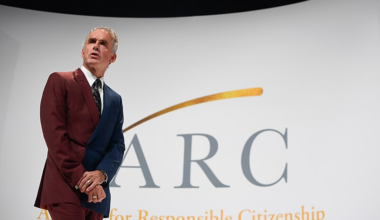

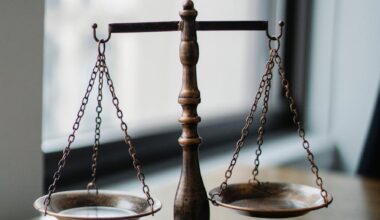

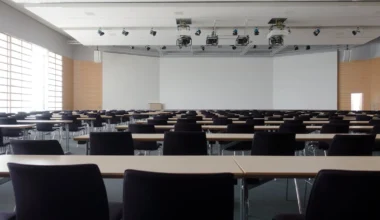
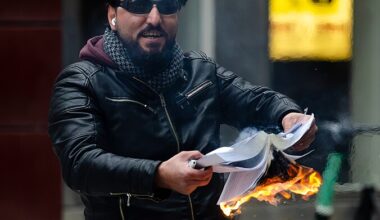
Your email address will not be published. Comments are subject to our Community Guidelines. Required fields are marked *
Donate